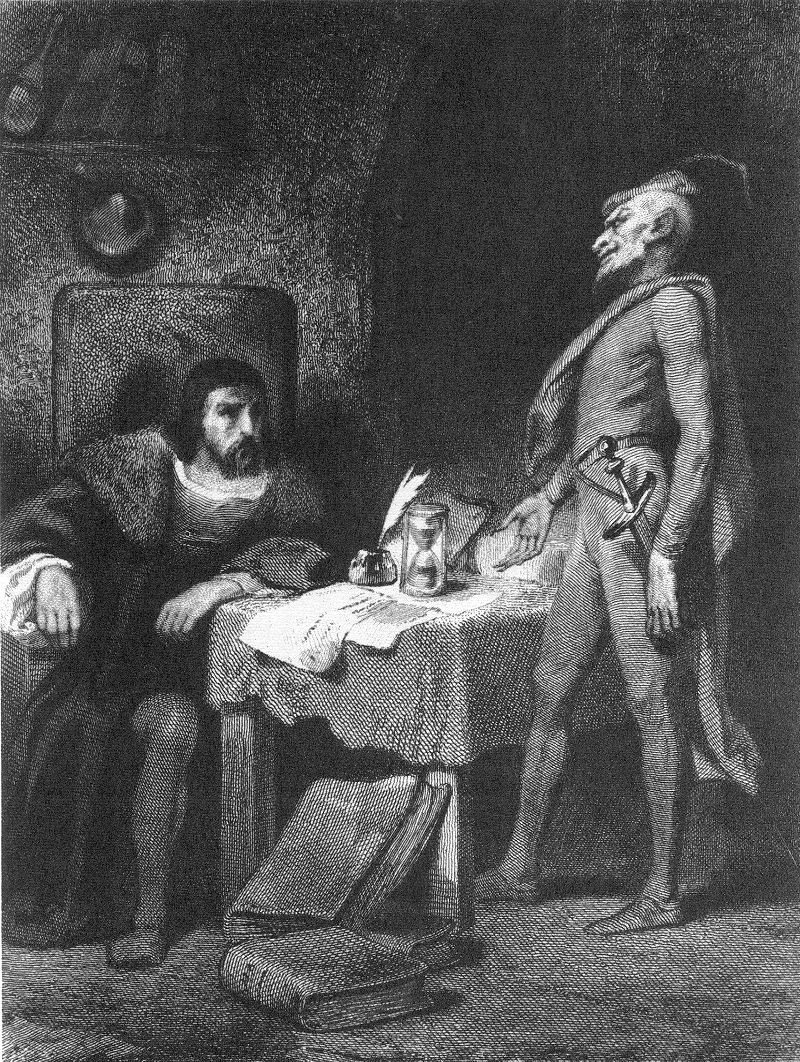No composer makes a chorus of demons chatter or a gaggle of witches dance like Hector Berlioz. In textbooks he is assigned the role of inventive orchestrator, but that dry description hardly does justice to Berlioz’s remarkable gift for using musical imagery to portray the stuff of his wildly romantic, darkly hued imagination.
Berlioz’s La Damnation de Faust is a vast, meandering musical epic. It takes over two hours and ample suspension of disbelief to consume this operatic work, but Berlioz offers a surplus of memorable scenes and aural treats in return for your time. This weekend The Dallas Symphony Orchestra, Dallas Symphony Chorus, Children’s Chorus of Greater Dallas and a quartet of talented guest soloists are performing Berlioz’s Faust only twice. Snag tickets for Saturday’s performance if you missed Thursday evening’s and want to hear this piece live at the Meyerson Symphony Center.
On Thursday night, bass-baritone Laurent Naouri was a deliciously devilish Méphistophélès. His voice is powerful and seductive and his performance style dramatic and expressive. He jumps up and crouches down, leans casually on the conductor’s podium and engages the audience at every turn. Naouri’s Méphistophélès is a devil we would all follow willingly, especially if we were feeling as down and out as the despondent Doctor Faust (“Where on earth will I find what my life is lacking?” Faust sings hopelessly). The lyric tenor Charles Castronovo’s portrayal of the depressed doctor is less dramatic than Naouri’s take on Méphistophèlés, but his voice is consistently pure, romantic and beautiful. Mezzo-soprano Ruxando Donose, who sings the role of Faust’s lover, Marguerite, has a rich, warm tone. Along with bass Mark McCrory and voix céleste Karen Wemhoener, this cast delivers.
On the way to hell, Méphistophélès guides our insatiably forlorn protagonist towards pleasure (in a bar), peace (in nature) and passion (in the bedroom). Along the way the chameleon-like chorus makes each of these rather detached scenes come to life. Portraying joyful peasants, marching soldiers, drunken revellers, dancing sylphs, mischievous will-o’-the-wisps and screeching demons, their contributions to this performance are significant and for the most part extremely well-executed.
The orchestra, too, plays a vital role painting the backdrop for each scene. When Faust is disenchanted by Méphistophélès’ attempts at entertainment through booze – even a drinking song about a flea in a dress doesn’t cheer him up – all it takes is a rush of high strings followed by floating piccolos and we are swept away into a bucolic landscape. This orchestra played beautifully and expressively throughout, but conductor Jacques Lacombe was a less expressive interpreter of Berlioz’s tale than I wanted. This was noticeable on Thursday night when the ends of phrases and scenes were hurried along without breath. Berlioz’s romanticism is so passionate, it demands more give and take in the tempo then Lacombe allowed.
The sum of all these parts – orchestra, choruses and soloists – is a memorable whole. With their help, Berlioz makes each character and scene come vividly to life and we in the audience get to sit back and enjoy one blissfully romantic, darkly sinister ride.






